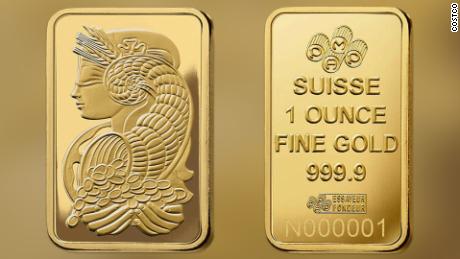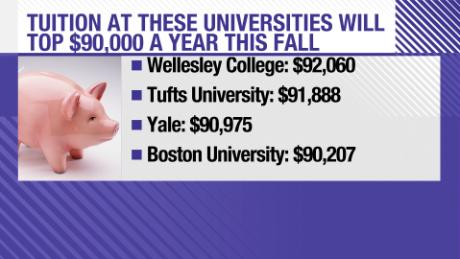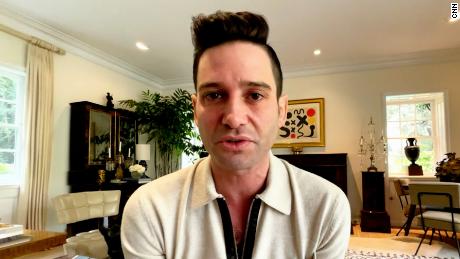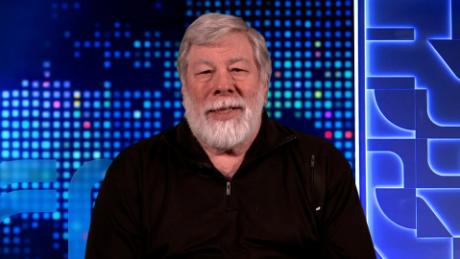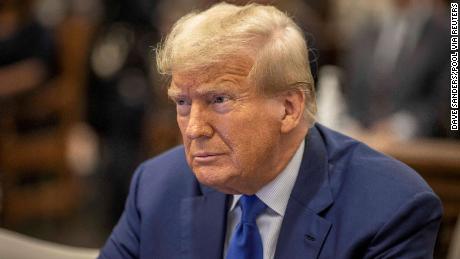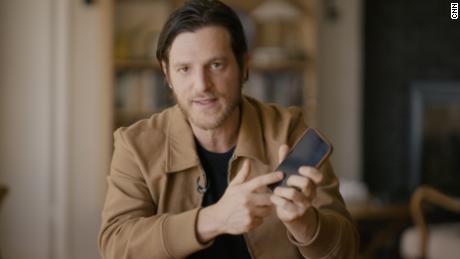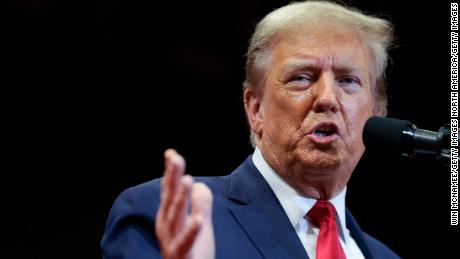Have you ever wondered how the BlackBerry smartphone got its name? Or how about the Swiffer mop, or the Impossible burger?
Just ask David Placek. For three decades, his company, Lexicon Branding, has been hired by the likes of Intel (INTC), Apple (AAPL), Procter & Gamble (PG) and Coca-Cola (KO), to help name hundreds of products and launch corporate rebranding campaigns.
The Sausalito, California-based firm is behind the name for Intel's Pentium brand of processors, Apple's PowerBook, Coca-Cola's Dasani bottled water and many other recognizable brands.
The story behind BlackBerry's name is one of Placek's favorites.
In 1998, Waterloo, Canada-based Research in Motion had reached out to Placek for help naming their new smartphone.
"They had this little rectangular device and were trying to name it for weeks. They were frustrated," he recalled.
Placek had his team do some field research.
"There was a Starbucks around the corner from us. We held up a sign near it that said we wanted to speak to people who used email regularly. We would pay them with a $10 coupon for five minutes of their time," he said.
After the team spoke with nearly two dozen people, Placek was able to offer RIM's executives a key insight: "We told them the product name shouldn't stress or elevate their blood pressure, but do the exact opposite and be calming," he said. "Like a summer vacation or a long walk, or fresh fruit."
Placek and his team wrote a variety of words on a big sheet of butcher paper. Someone wrote "strawberry." Another wrote "blackberry." It caught his attention.
"So I flew to Waterloo and presented the name BlackBerry. The executives thought I was crazy," he said. "I said it would work because none of their competitors would have had the courage to use BlackBerry as a name."
The rest is history. RIM officially changed the company name to BlackBerry in 2013.
The value of a good name
The naming process, according to Placek, typically takes around eight weeks and can involve as many as 10 to 12 people working on the creative process and trademark research. Clients pay anywhere from $50,000 to $150,000, depending on the project.
In 2015, Melinda Gates' investment and incubation firm, Pivotal Ventures, turned to Placek seeking help.
"Lexicon Branding had a very impressive record of clients," said Catherine St-Laurent, director of brand and special initiatives with Pivotal Ventures.
"The challenge was to capture Melinda's goal for the organization to be a force for positive change, to do important work, and to get results," recalled Placek. His team began brainstorming on names in September 2014 and by the following February, they presented Pivotal Ventures. "The definition of 'pivotal', meaning of vital or critical importance, was what made us all excited about the name."
"In the end, 'Pivotal' was the perfect solution."
The hidden power of "B" and "V"
Back in college, Placek was more of a political junkie than a wordsmith, majoring in political science at the University of California, Los Angeles. "But I did enjoy writing," he said.
He went to graduate school at George Washington University. He then took a job in Washington DC, working as a staff member for the US Senate Commerce Committee. After that, he moved to Missouri to write speeches and handle communications for the campaign of a candidate running for Senate.
When that candidate lost, Placek decided to return to California. But instead of politics, he jumped into the advertising industry. "I did ad writing and helped with new product development for clients," he said.
The advertising experience gave him the idea to launch a business centered exclusively around linguistics that would help companies create names for new products.
"That was our niche."
Placek launched Lexicon Branding in 1982, self-funding it with $45,000 from his savings and credit cards. Today, his firm is profitable and generates about $8 million in annual revenue.
While Placek himself wasn't an expert in linguistics, he made sure to hire people who were. Among his first employees was Will Leben, a linguistics professor at Stanford University who now oversees the firm's in-house linguistics team and network of 90 linguist partners globally. Another early hire, Bob Cohen, helped develop the firm's linguistics-based model.
Cohen and Leben helped Placek research the science behind effective names and what makes one name perform better than another in the marketplace. Together, they formulated a three-step creative process to engineer brand names. It involved an area of linguistics called "sound symbolism" -- or how the mind processes certain words -- and an analysis of letter structures and patterns.
"We always begin with... [identifying] a specific role for the name," said Placek. A good name, he said, should be easy to process, highly noticeable in its [product] category, and noteworthy. From there, his team conducts preliminary trademark research on a subset of brand name candidates.
A linguistic evaluation of the name follows. Placek said Lexicon's network of global linguists complete an initial research evaluation of each brand name and ensure the name does not carry negative associations.
Then a separate sound symbolism analysis is conducted to study sound quality and the feelings evoked by the letters in the alphabet.
"Research shows 'B' is perceived to be one of the most reliable sounds in the English language," he said. "'V' is a daring sound. Think Viagra or Corvette."
Simply arriving at a name consumers like, though, isn't enough, added Placek.
"The market is so cluttered with new products that we're always so distracted as consumers," he said. "So memorability [in a name] is very important, too."
Case in point: Swiffer.
Procter & Gamble introduced its Swiffer line of floor mop products in 1997.
"Procter & Gamble came to us in 1995 with their idea of an improved mop. I looked at it and said this isn't a mop at all. It was so different," he said. Placek had his team conduct consumer research.
"Consumers told us mopping was their least pleasant household activity," he said. "Immediately we thought the name we come up with had to put some joy into the activity,"
Starting with sound words like "swipe," "swish," "swiff" ultimately led to Swiffer. "We settled on swiff and added an 'e' at the end, then an 'r.' Boom. That was it."
Impossible Foods, the company behind the popular plant-based Impossible Burger, was another client.
"This was a difficult one for us," he said. "This is a company that has reimagined healthy food." After throwing around a few names, someone wrote the word "impossible" on the list.
"I took it to the company and told them it was a lot like them, 'Impossible,' in that they were doing something that was almost impossible with their food innovation. They loved it," said Placek.
Correction: A previous version of this story stated that Placek attended graduate school at Georgetown University. He is a graduate of George Washington University.





